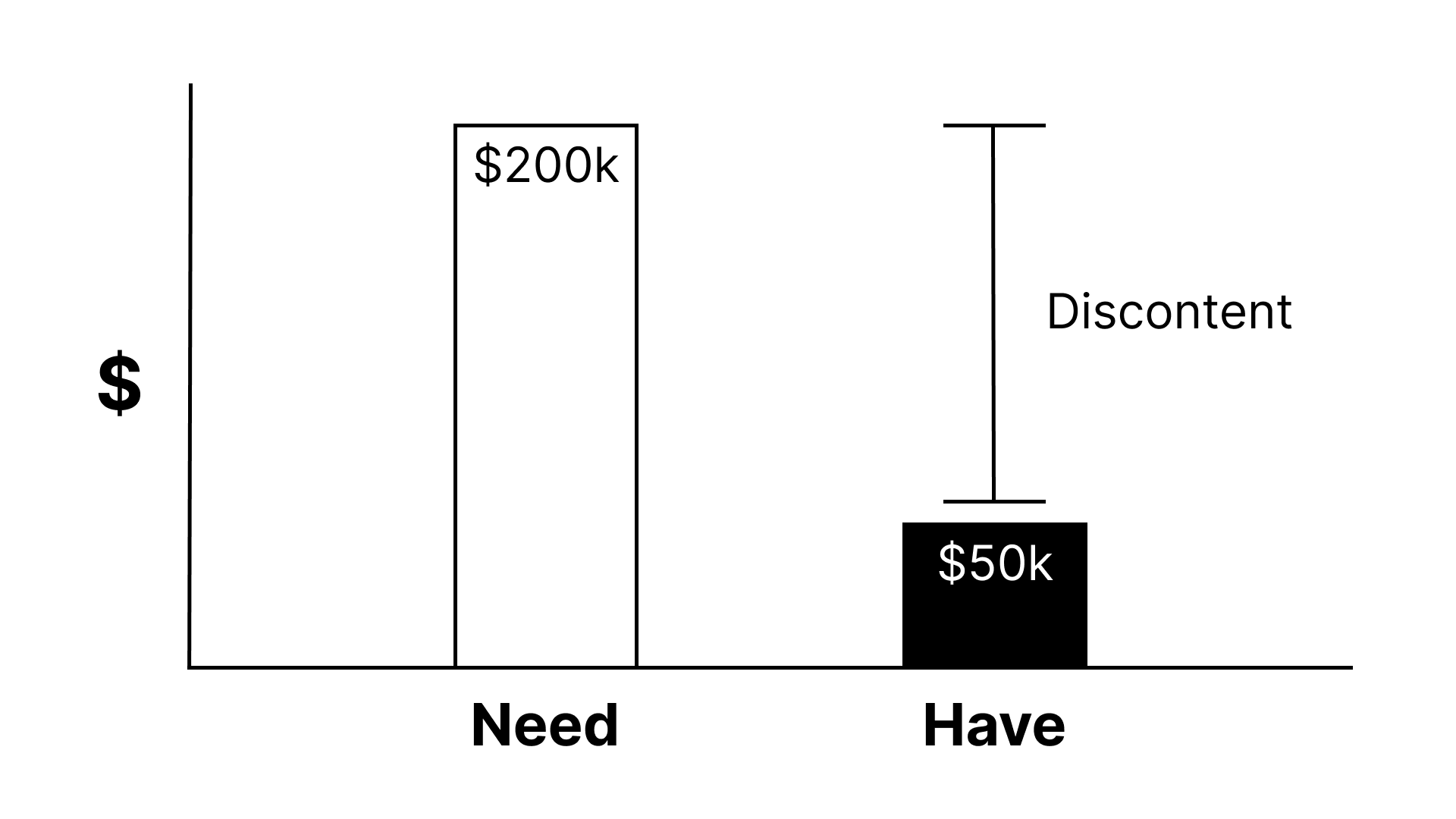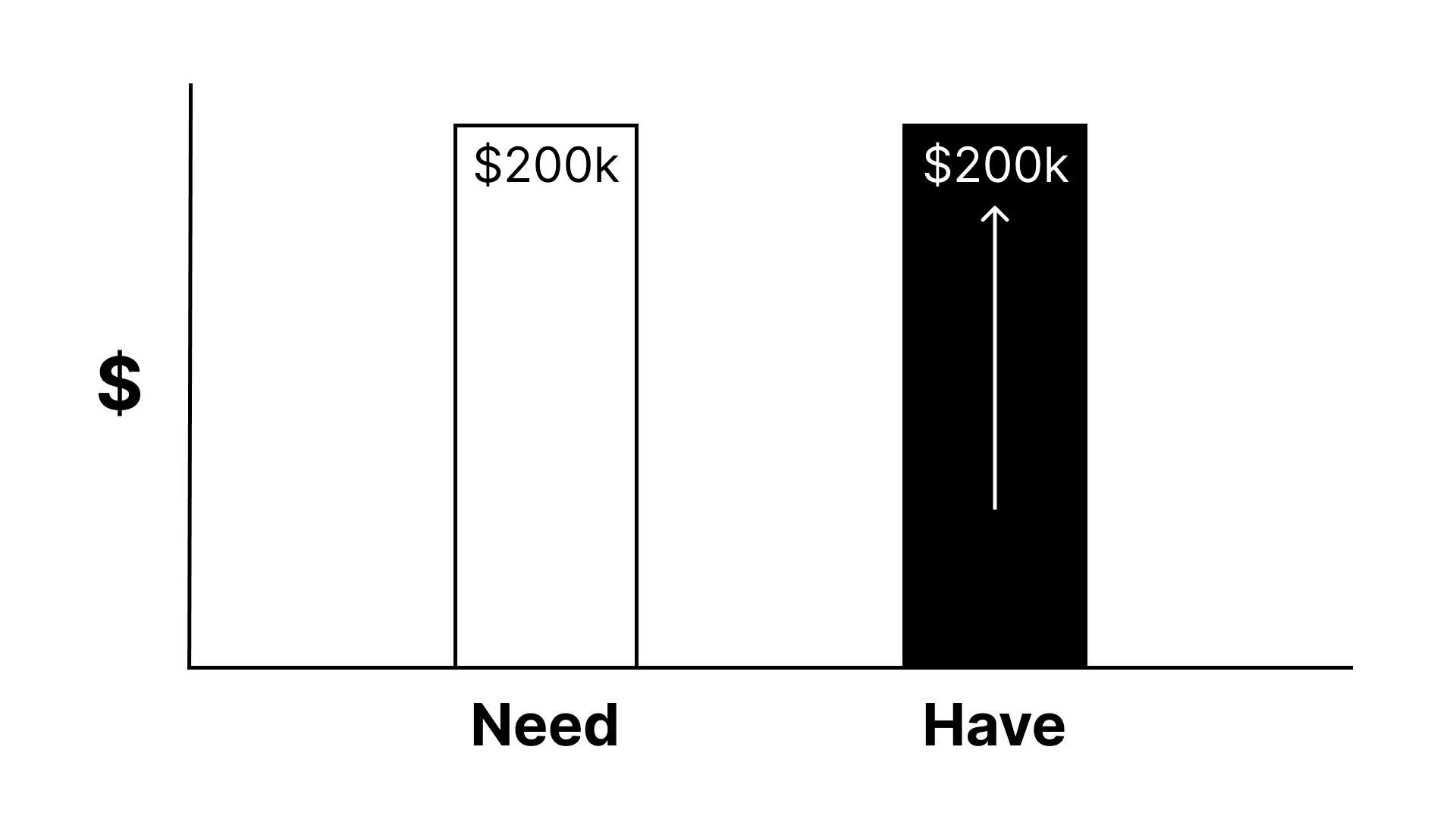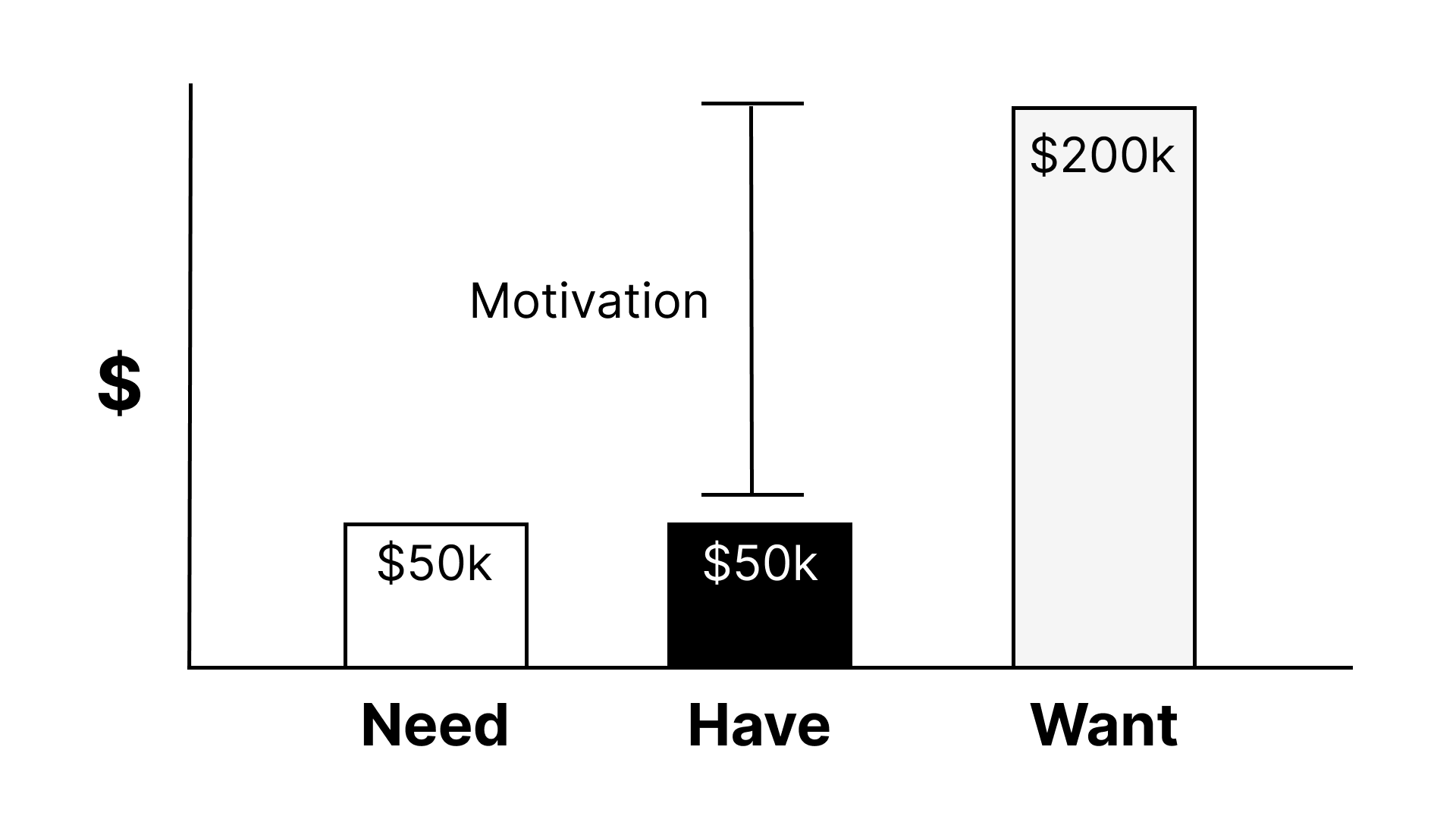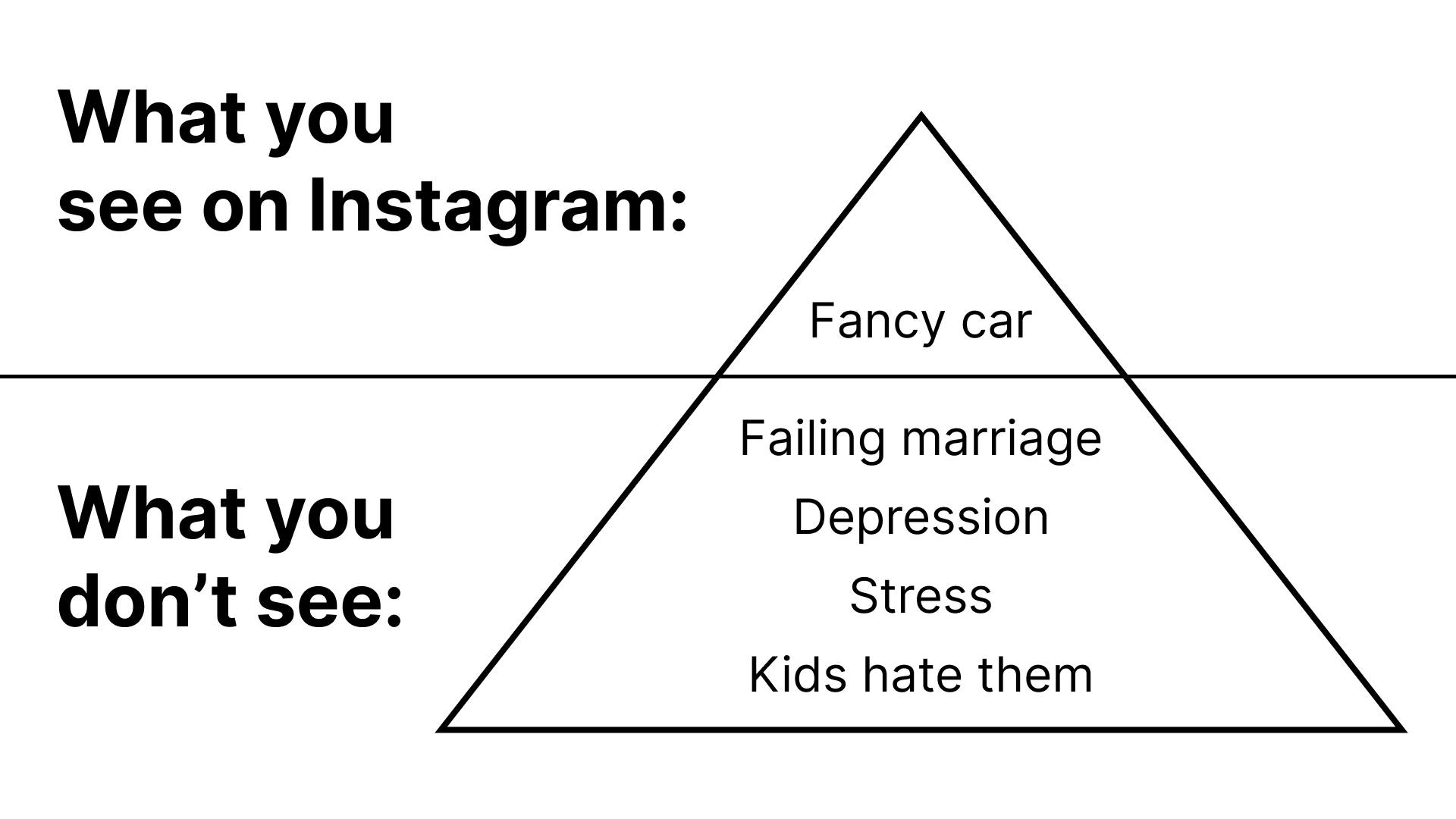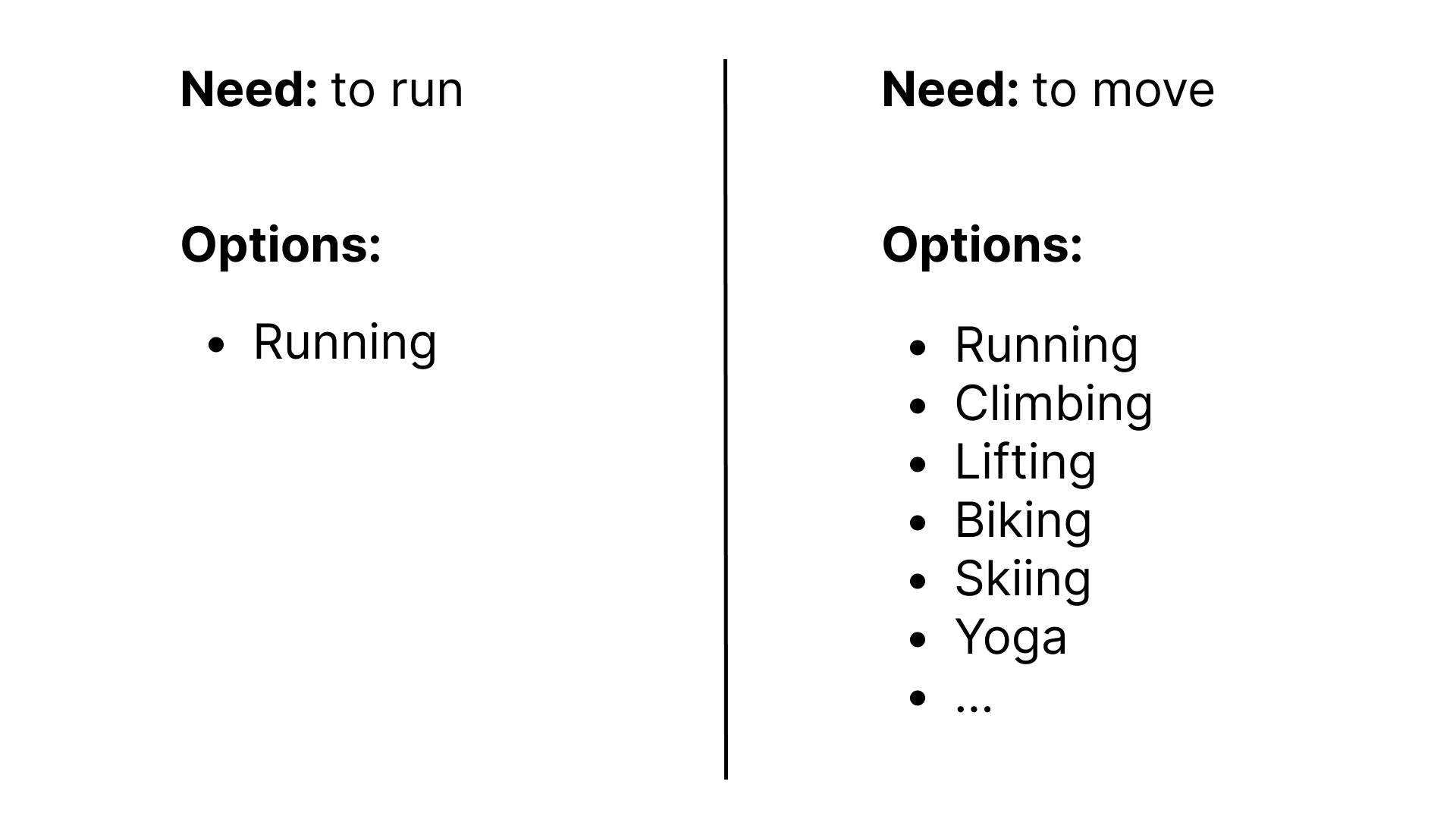How To Be Content Without Losing Your Ambition
I once heard a story about two writers — Kurt Vonnegut and Joseph Heller.
They’re at an extravagant party hosted by a billionaire hedge fund manager.
Kurt leans over and says, "Joe, how does it feel to know that our host made more money yesterday than your novel 'Catch-22' made in its entire history?"
Joe pauses for a minute. Then he says, "I've got something he can never have."
"What on earth could that be?" asks Kurt.
"The knowledge that I've got enough."
True Success Includes Contentment
Once you've achieved a certain level of success, it becomes clear that achieving more won't make you happier.
I sold over a million dollars worth of coaching and courses before turning thirty. The first sale felt great. But after that, making sales just became normal.
That's when I realized:
If I didn’t learn to be content with what I had, no amount of success would ever feel like enough.
This is due, in part, to a psychological theory called the Hedonic Treadmill. We feel good when we get a promotion, buy a new car, or reach a fitness goal. But we return to our baseline happiness very quickly.
So it’s worth learning how to become content with what you have.
Here’s the challenge:
We often worry that by becoming content, we'll lose our motivation and become complacent.
But is this really true?
Is it true that contentment is in direct opposition to ambition? That the more you have of one, the less you have of the other?
Fortunately, no.
True success requires separating contentment from ambition and developing both simultaneously.
It all comes down to distinguishing a need from a want.
The Secret: Need Less, Want More
Contentment is about having as much as you need, or more.
The bigger the gap between what you need and what you have, the less content you'll be.
For example: If you think you need to make $200k a year to be happy, but you only make $50k, you won't feel content.
When you have less than you need, you’re not content
There are two ways to close this gap.
The first option, in this example, is to make more money. Then what you have will be equal to what you think you need.
Option 1: Having more to become content
This is how a lot of us approach life. We're driven by a sense of lack, and we use it to achieve things. But as we’ve already discussed, it’s easy to keep moving the goal posts. So our contentment rarely lasts.
Fortunately, there’s another way to become content: needing less.
Option 2: Needing less to become content
By needing less, I'm not just talking about lowering your living expenses. I'm also talking about lowering your perceived needs.
Many of us believe that we need more money than we actually do. Or more free time. Or more friends. In other words, we confuse our needs and our wants.
You might want to make $200k. But do you really need that much to be happy? Almost everyone in the world survives on far less, and many of them are quite happy.
You can become content now, regardless of what you have, by simply needing less.
This does not prevent you from improving your life.
There’s a third option: You can need less while wanting more.
Option 3: Needing less while wanting more
It's this second gap, between what we have and what we want, that creates motivation.
What's the difference between a need and a want?
With a need you're saying, "I can't be happy without this." With a want you're saying, "This would be preferable."
In other words, you're not attaching your happiness to a want.
This type of ambition can seem weaker. Which is why a lot of us fall into the trap of making our wants into needs. We try to use our discontent to fuel our achievement and then wonder why nothing ever feels like enough.
To avoid this, we need to learn how to need less while wanting more.
How To Need Less
Here are 6 ways:
1. Focus on what you already have
Contentment is a game of perception. Whatever we focus on grows. When you focus on what you don't have, your perceived needs go up. When you focus on what you have, your perceived needs go down.
Gratitude is probably the biggest shortcut to needing less. I'm reminded of this quote by Eckhart Tolle: “Acknowledging the good that you already have in your life is the foundation for all abundance.”
Mindfulness practices like meditation are also helpful. In this moment, your needs are almost always met. It's only when you go into the future, or into the past, that a gap opens up.
2. Avoid the comparison game
Contentment is relative. A lot of people say "don't compare yourself to others." But that's how human beings are wired. We're always seeing how we measure up.
In a 1998 survey, respondents chose between two scenarios. In the first, they made made $50k per year while their peers made $25k. In the second, they made $100k while their peers made $200k. Half of respondents chose the first option. They wanted to make more than their peers even though it meant making less overall. Crazy!
This is one reason I quit social media four years ago. It's too tempting to measure your success based on other people. And that's a game you can never win, because there's always someone doing better than you in a given domain. And, of course, what you see on social media is an incomplete picture of someone’s life.
3. Diversify Your Happiness
When I was in high school, I focused all my energy on wrestling. When I was winning, life was amazing. When I was losing, life was awful. My identity, happiness, and self-worth were all tied up in that one thing.
Single-minded focus can create results. But neediness creates pressure. And that pressure often had me perform worse in high-stakes matches.
Balance releases pressure. These days, I'm diversified across my marriage, friendships, business, and physical pursuits. It's hard to have a bad day when there are so many ways to win.
4. Focus on what you can control
It's risky to get too attached to a specific outcome. To say, "When I hit this much in revenue, or when my partner changes this thing, then I'll be happy." Because it might not happen for you no matter how hard you try.
This is one reason why I like to set process goals (e.g. YouTube videos created) in addition to outcome goals (e.g. number of subscribers). If I can't find joy in the process itself, I usually set a different goal. Otherwise I'm staking too much on something in the future, something I can't control.
Same thing with the approval or esteem of other people. Their opinions are completely outside of my control.
5. Release your expectations
In the movie Stutz, Jonah Hill's therapist, Phil Stutz, says life is "pain, uncertainty, and constant work." People who accept this fact, he's noticed, are happier than those who avoid it.
The job that looked easy from the outside was a nightmare on the inside. The movie that your friends raved about beforehand wasn’t as good as you hoped. You expected your partner to make dinner for you, and they didn't.
So much of our suffering comes from expecting things to be different than they are. When we accept reality for what it is, when we don't need it to be different, the result is contentment.
6. Define your needs more broadly
I used to compete in obstacle course racing. Then I started getting this weird pain in my ribs when I ran. I went crazy going to all these doctors, getting ultrasounds, and doing physical therapy. But none of it helped.
Then one day I thought, "This is only happening when I run. I can still lift weights, ride my bike, and do all sorts of things. I like running, but only because it feels good to move my body and to compete. I can meet those needs in a million other ways."
A few years later, the pain went away on it’s own. I was able to run again. But weirdly, I run way less these days because I’ve found other things I enjoy.
The more broadly you define your needs, the more flexible you can be in meeting them. It's hard to stay content when you're attached to one specific type of exercise, business, hobby, or relationship. Life is too fragile.
How To Want More
When you let go of your perceived needs — your need for approval, your need for reality to be different from how it is, etc. — you're left only with things you want. Things you're motivated to do for their own sake.
Previously, you didn't even know what you wanted. You were just driven by a collection of made up needs. And those made up needs obscured your natural motivation.
This is the type of motivation that makes you want to travel to Spain, take a walk, learn to snowboard, start a business, or ask someone to marry you.
Can you still set goals? Of course. There’s a whole field of personal development dedicated to helping you get what you want.
The key is to want these things without needing them. And to do that, you need to learn how to recognize, trust, and follow your excitement.
An interviewer from the Financial Times once asked tennis champion Novak Djokovic how he stays motivated.
He said: "I can carry on playing at this level because I like hitting the tennis ball."
The interviewer asked him if there are players who don't like hitting the ball.
Djokovic said, "Oh yes. There are people out there who don't have the right motivation. You don't need to talk to them. I can see it."
So keep your ambition. Just make sure you actually enjoy hitting the ball first.
That way, you’ll always have enough.
***
If you liked this article, you’ll love the concept of High Intention Low Attachment.
Or, if you want 1-1 support, apply for a strategy session.

